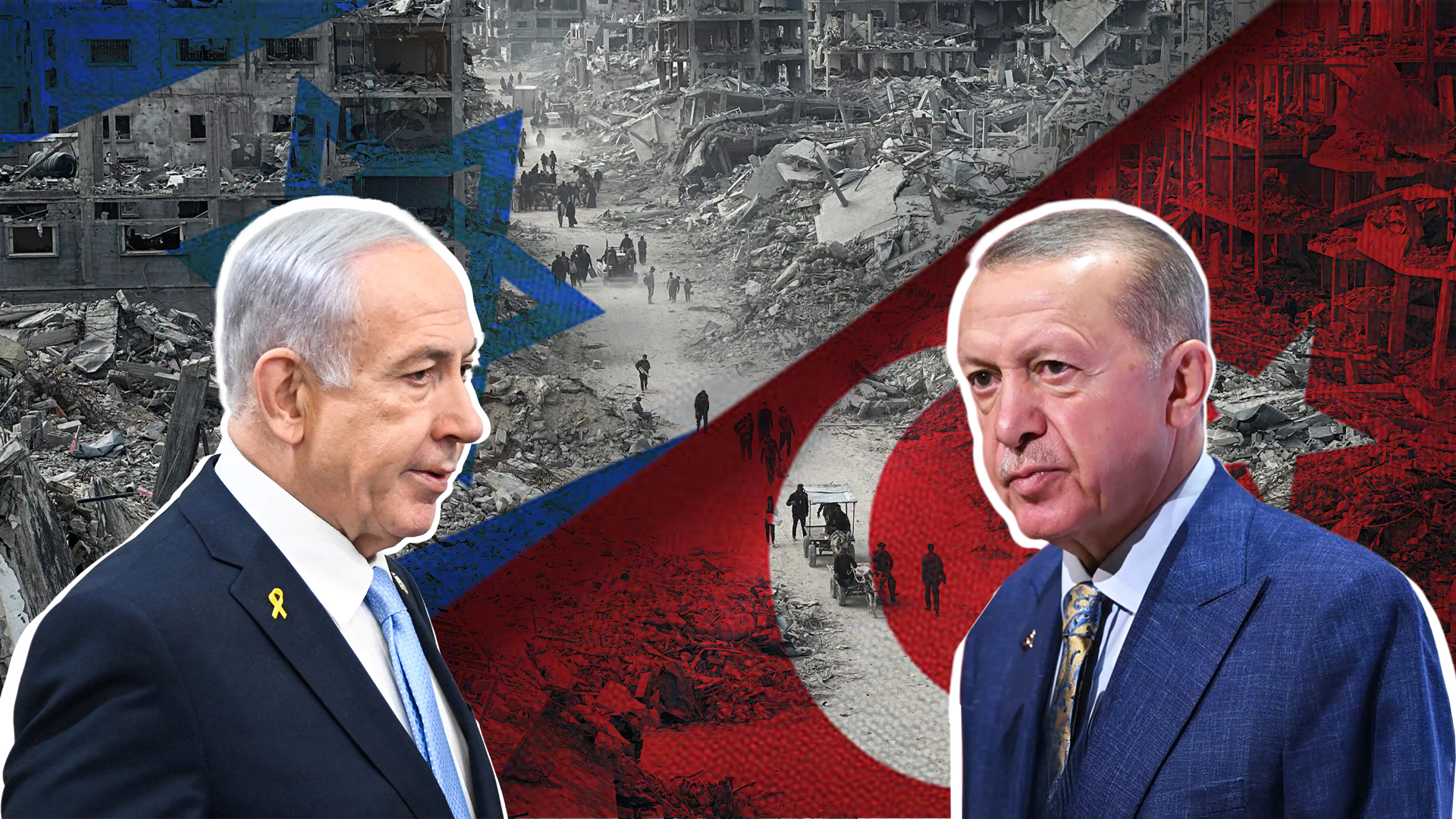Türkiye Issues Genocide Arrest Warrants Against Netanyahu and Senior Israeli Officials
Türkiye issued genocide arrest warrants for Israeli PM Netanyahu and 36 senior officials, citing the bombing of a Turkish hospital in Gaza. The move escalates Ankara's legal campaign after it joined South Africa's ICJ case against Israel.

ERBIL (Kurdistan24) – In a dramatic escalation that underscores Ankara’s deepening confrontation with Israel over the Gaza war, Türkiye announced on Friday that it has issued arrest warrants on charges of genocide and crimes against humanity against Israeli Prime Minister Benjamin Netanyahu and several of his top officials.
According to a statement from the Istanbul Chief Public Prosecutor’s Office, the warrants target 37 Israeli officials, including Defense Minister Yisrael Katz, National Security Minister Itamar Ben Gvir, and Army Chief of Staff Lieutenant General Eyal Zamir. The statement, while not disclosing the full list of names, accused the officials of overseeing “systematic acts of genocide and crimes against humanity committed in Gaza.”
The prosecutor’s statement explicitly cited the bombing of the Turkish-Palestinian Friendship Hospital in Gaza last March — a facility built and operated by Türkiye— as one of the incidents prompting the legal action. The hospital’s destruction, which killed and wounded medical personnel, was described by Turkish officials at the time as a “flagrant violation of international humanitarian law.”
The move follows Türkiye’s decision last year to join South Africa’s case against Israel at the International Court of Justice (ICJ), accusing Tel Aviv of genocide during its military campaign in Gaza. Ankara’s latest step marks the first time Turkish prosecutors have sought international arrest warrants directly against Israel’s political and military leadership.
A fragile ceasefire has been in place in the devastated enclave since October 10, under the framework of U.S. President Donald Trump’s regional peace plan. Yet, despite the pause in fighting, tensions remain high as reports from Rafah indicate that dozens of Palestinian fighters remain trapped in underground tunnels surrounded by Israeli forces.
Within Israel, deep divisions persist over how to resolve the crisis in southern Rafah, where according to Israeli intelligence, between 120 and 150 members of Hamas’s al-Qassam Brigades are believed to be trapped inside a tunnel complex.
At a recent cabinet security meeting, Israeli Army Chief Eyal Zamir—one of the officials now targeted by Ankara’s warrant—reportedly rejected proposals to deport the trapped militants, insisting instead that “the crisis must end either by killing them or by their surrender.”
Zamir reportedly defined surrender as the fighters “coming out in their underwear, blindfolded, handcuffed, and transferred to the detention camp in Sde Teiman.” He also opposed any advancement of the ongoing prisoner exchange deal before Israel recovers the remains of soldiers held by Hamas.
Defense Minister Yisrael Katz, another official named in the Turkish case, similarly dismissed deportation plans, citing previous violations of ceasefires by Hamas.
These statements, widely covered by Israeli and international media, have added to Ankara’s justification for pursuing legal measures, which Turkish officials describe as “a necessary response to open admissions of war crimes and dehumanization.”
The Turkish arrest warrants represent a new chapter in the ongoing diplomatic fallout surrounding the Gaza conflict. Legal experts say Ankara’s move—though largely symbolic in the absence of an enforcement mechanism—sends a strong message about Türkiye’s alignment with international legal efforts to hold Israel accountable.
The timing of the decision also coincides with Washington’s renewed diplomatic pressure to maintain the ceasefire and move forward with plans for Gaza’s demilitarization and reconstruction. Former U.S. envoy Steve Witkoff recently revealed that Hamas had expressed readiness to disarm during a meeting with him and former White House adviser Jared Kushner, with discussions underway to establish an international force to oversee weapons surrender.
Witkoff said he had coordinated with Turkish Foreign Minister Hakan Fidan and Israeli Minister Ron Dermer, underscoring Ankara’s central role in the post-war political process—even as it pursues legal action against Israel’s leaders.
Türkiye’s government has repeatedly described Israel’s campaign in Gaza as a “crime of genocide,” calling for an independent international investigation and pressing for sanctions and accountability under international law. President Recep Tayyip Erdoğan has vowed that Ankara will “use all legal and diplomatic channels” to ensure justice for the victims in Gaza.
While the newly issued warrants are unlikely to result in immediate arrests, they represent a significant escalation in Türkiye’s legal and moral confrontation with Israel—and highlight Ankara’s effort to position itself as both a regional mediator and a defender of international law amid the ongoing humanitarian catastrophe in Gaza.